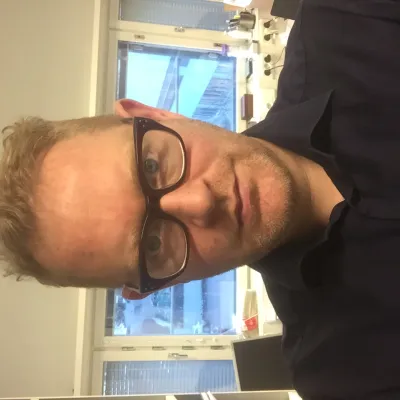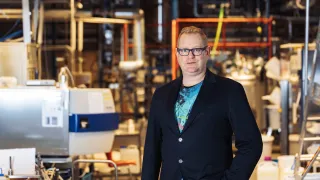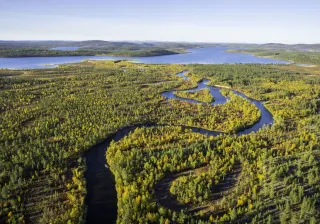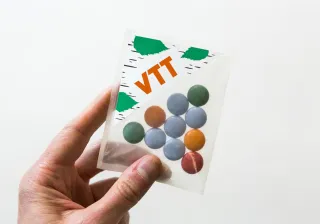Coming out of a PhD and comparing pros and cons between industry and academia? Established researcher but weary of short contracts and funding insecurity? Anxious to see ideas lead to impact? “One thing I can promise is that you can have an impactful, non-boring scientific career at VTT,” says Dr. Alistair King, who made the jump from a university career to applied research at VTT in early 2022.
Having earned a PhD in Organic Chemistry from the Queen’s University of Belfast, Dr. King came to Finland in 2004. Since then, he worked with pharmaceutical synthesis, ionic liquids, and wood chemistry at the University of Helsinki, starting as a Postdoctoral Researcher and working his way through different roles – most recently teaching and conducting research as a University Researcher and Docent in Organic Chemistry.
When, in early 2022, Dr. King was first approached about a role as a Principal Scientist in the Functional Cellulose Team at VTT, he was curious to know more about the organisation he would be getting into.
“I sought out current VTTers to get an insider’s view on what the work and the organisation’s working culture were like. Talking to them, I was convinced that people at VTT shared a culture, ethics, and rigour that I could connect with,” Dr. King explains.
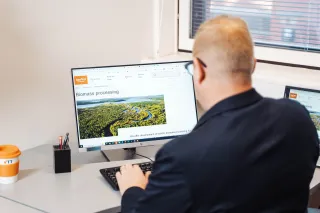
Industry challenges pull science forward
When Dr. King started at VTT, he was surprised by how quickly he got to jump onboard and get involved in different projects.
“In my previous academic roles, my work typically focused on only a couple of key projects at once. At VTT, we build science for real-world challenges, and our work is often steered by the needs of the industry and our customers. There is a lot of variation in my work, which keeps the mind active,” Dr. King describes.
One of my professional dreams is to develop some new phenomenon that can have clear impact and potentially be commercialised within a short timeframe. At VTT, I believe this is possible.
For Dr. King, one of the most rewarding parts of his work is to see the impact. In recent years, awareness of problems caused by fossil fuel-based materials has increased, but to solve them, new alternatives are urgently needed. The team at VTT works with companies to design new biobased materials that can replace unsustainable plastics and eliminate environmental hazards like microplastics and garbage in the oceans.
“One of my professional dreams is to develop some new phenomenon that can have clear impact and potentially be commercialised within a short timeframe. At VTT, I believe this is possible,” Dr. King explains.
Teamwork, teamwork, teamwork
Teamwork is the word Dr. King uses the most when talking about his work. Teams at VTT work closely together and consist of experts with different backgrounds; some with extensive industry experience, others with specific research skills or business acumen.
In his role as a Principal Researcher, Dr. King often works in an advisory role, supporting colleagues in different customer projects. He has seen again and again how problem-solving happens through dialogue, and new ideas arise from discussions with peers.
“At VTT, we all work toward a common goal. There is genuine trust and cooperation. Sometimes in academia, the system forces everyone to pursue their own goals and build their own empires. Here, we all move in the same direction and can rely on each other, not just ourselves,” Dr. King describes.
At VTT, we all work toward a common goal. There is genuine trust and cooperation.
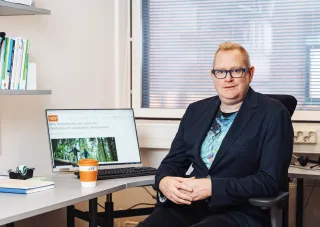
Many researchers that pursue academic careers have experienced uncertainty with contracts or resources, which can cause additional stress. “I believe that having stability and permanent contracts can help us achieve our goals; instead of competing against one another, we direct our energy to solving real-world problems together,” Dr. King explains.
So, who should consider a career at VTT? Dr. King has an answer ready:
“Research skills and accomplishments alone are not enough. Openness to teamwork is a must.”
